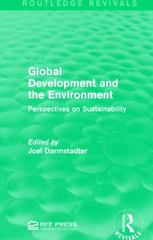Analyze the following dynamic game and find all its Nash equilibria. Click on an outcome associated with a Nash Equilibrium based on non-credible threats. Please click inside the box and steer away from the edges so that the computer can grade you accurately. Player 2 UP (20, 20) UP Down (40, 35) Player 1 Support (35, 35) Down UP Down (50, 30) Analyze the following dynamic game and find the sub-game perfect Nash equilibrium. Click on the outcome associated with the SPNE. Please click inside the box and steer away from the edges so that the computer can grade you accurately. Player 2 UP (20, 20) UP Down (40, 35) Player 1 Support Down Up (35, 35) Down (50, 30) Aspartame is a low-calorie, high-intensity sweetener. It was discovered (by accident) by a research scientist at G.D. Searle & Co. who was working on an anti-ulcer drug. Use of aspartame in soft drinks was approved by the US Food and Drug Administration in 1983. Searle extended the original patent to 1987 in Europe and 1992 in the US. In 1985, Monsanto acquired Searle, including the aspartame patent, and began selling the soft- drink version under the brand name "Nutrasweet." The product had an enormous market as the sweetener in Diet Coke and Diet Pepsi, in Europe, Asia, and especially the US (approximately 10 times the size of the European market). In 1986, Holland Sweetener Company (HSC) began building an aspartame plant in anticipation of the patent's expiration. Analysts estimated that HSC's capacity was about 5% of the world market. When HSC began selling its own version of aspartame in Europe, Monsanto dropped the price of Nutrasweet from $70 to $22-30 per pound. Since HSC had higher costs (production has a steep learning curve), HSC lost money at the new price and Monsanto had substantially lower profits in Europe. When the US patent expired, Coke and Pepsi signed long-term contracts with Monsanto. Questions for Analysis (a) Would you expect a sharp drop in price after a patent expires? (b) Who benefited from HSC's entry? (c) Why do you think Monsanto triggered a price war in Europe? Do you think this was a good strategy







